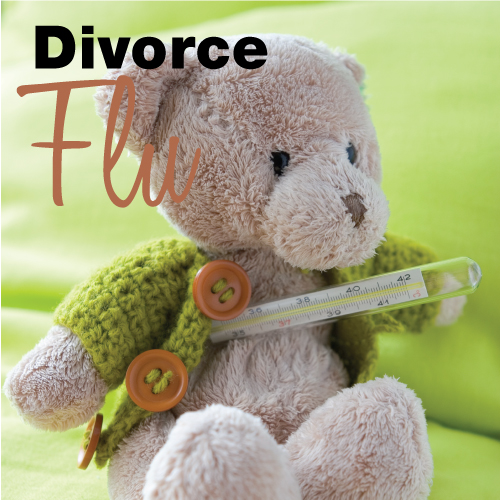Your cart is currently empty!
Category: Relationship Tips
-

The Blame Game – IKEA Carpark Couple Therapy
The scenario: a frazzled couple, stroppy kids and a car that just isn’t big enough to fit all the stuff they’ve just bought in store. The setting is ripe for the good old ‘blame game’.
Visit an IKEA carpark on a weekend afternoon and you’ll spot dozens of hapless couples caught in the blame cycle. The initial checkout high that follows the inevitable impulse purchase (has anyone EVER been to IKEA and NOT bought something that wasn’t on their list?) is soon displaced by post-purchase regret. There’s that horrible sinking feeling in the pit of your stomach as you realise that you just wasted your money on an item that wasn’t really necessary or wasn’t quite right. And you’ll be living with the reminder of your bad judgement in your living room for the next decade.
Reality sets in. Now you have to get it home… somehow… and quickly before the kids unravel and the car park grid-locks. You wave on the driver waiting to take your car spot – this is not going to be a quick exit!
It doesn’t take long for the blame talk to start. The delicate negotiations in store that seemed a fair deal (“you can get that if I can buy this”) are a distant memory. The script will get rewritten in accusations of selfish or irresponsible behaviour as the blame missiles begin.
Everyone loses when this happens. The kids will be alternately ignored, corrected and criticised for being too disruptive. And they’ll both say things to each other that steal the joy of home-making and leave emotional scars.
Blaming might be predictable, but it is never constructive in a marriage. Too often blaming is an avoidance strategy; it deflects our attention away from our own emotions of guilt for a selfish choice or regret for a bad judgement to focus on our spouse’s shortcomings. The diversion allows us to avoid the internal work of processing these emotions.
But it takes time and space to process this kind of internal conundrum and the carpark isn’t the time or the place. When we’re under pressure, blame is the shortest route to alleviate our internal angst.
However the relief is generally short-lived. A bit like the alcoholic or addict, indulging in blame provides temporary relief from intensely unpleasant emotions, but it never deals with them in any permanent way. It only masks them. Blame is the shortcut we use to avoid dealing with those feelings and consequently avoid resolving the underlying issue.
Making our spouse feel badly through our blame will never alleviate our own negative emotions: if anything, blame adds to them as the situation escalates to an all-out fight or sends our spouse crashing. Now we feel guilty for being such a jerk.
It takes a certain self-awareness to be able to recognize when we are playing this game with ourselves. It takes enormous maturity to practice the self-restraint necessary to resist our impulse to avoid those intense feelings with blame and accusation. But it’s necessary. It’s necessary for our growth. It’s necessary for our relationships.
So next time you need to process your stuff, don’t waste money on a therapist. Take a visit to IKEA…and don’t forget to thank the staff for the free therapy!
-

Relationship Meltdown in Ikea
“Why do couples fight in Ikea?” friends asked us. They had made a long-planned store visit on the weekend and almost every couple they encountered, including themselves, were stressed, tense and exchanging angry words. What starts out as a highly anticipated, romantic outing too often degenerates into a ‘I should have stayed in bed’ day.
We can relate all too well. There have been many soured Ikea outings in our history too. So much so, we now think really carefully about whether we should both go or just one of us!
Ikea’s value proposition is a quick, affordable, self-service solution: choose your item, pay for it, and take it home. Presto! New look home in one afternoon. Sounds like a great relationship building activity for couples, right?
If only that were so! The problem begins with the first step of the process – choosing what you want is a lot easier if there’s only one opinion to accommodate. And though it’s not overly expensive furniture, it’s not usually a trivial purchase either, especially if you’re on a tight budget as are most young couples. Warring couples tend to hold on to their point of view a little more enthusiastically when significant sums are at stake.
Add to that the pressure of a noisy, overcrowded store and the frustration of an understaffed service desk and it’s a recipe for relationship meltdown.
But it’s more than just the Ikea environment that makes couples so argument-prone… after all, couples can be found in stubborn standoffs in any furniture store. It took us almost ten years to agree on a dining room table. We kid you not – ten years! By the time we finally made the purchase, we had moved house and birthed three more babies. There’s just something about furniture shopping that brings out the inner psycho in us. Here’s our take on what’s going on.
Furniture choice and home decorating have high symbolic status – a simple bookcase to one person might mean longed for order and tidiness, while for another it’s an opportunity to show off treasured possessions. One may seek to establish a quiet retreat with books neatly stowed, while the other is thinking about how the bookcase will transform the room into a lively entertainment space. It’s still just a bookcase but the solutions that it offers are many.
Couples are almost never aware of their own underlying agendas when they set out to buy a bookcase. Their communication thus tends to be fuzzy and can quickly become defensive as they try to argue their muddied view about what they should buy.
Unless they are able to articulate the values beneath their choice – eg. order and peace for one, and social connection through entertainment for the other – they will likely get stuck arguing about which bookcase to purchase. Once installed, that bookcase will be a visual reminder of how the argument played out; a symbol of victory or a source of irritation.
The key for couples is to connect on their values. It’s a lot easier to find the right solution when you know what you are each solving for. By articulating your values, you clarify for your spouse what is really important. Maybe it doesn’t matter after all what the colour or style is as long as it functions to create order and peace. Or maybe, there’s a better room to use for the purposes of a retreat and the living room gets optimised for entertainment. You get the idea: when you think about the values rather than the specific details or features of a choice, you can almost always find a solution that meets both of your needs.
It’s a triple win: you win, your spouse wins, and your relationship wins.
Our home is our shared space as a couple. Setting up home and growing a family are joint projects that have the potential to bond us and build powerfully enriching memories. Buying a piece of furniture is therefore not a trivial decision. The choices we make express our coupleness – when made well, they’ll nurture our inner life as individuals and as a couple. When made poorly, they can have long lasting negative impact.
Of course, if the couple survives the Ikea store experience with their relationship still intact, they have yet to face the real challenge: how to get all the stuff they bought into the car AND assembled without triggering a nuclear meltdown!
-

The best worst thing … ever
We’re loving this annimated presentation of how fertility awareness methods stack up against other birth control methods. It’s had over a million views on Youtube and quite a few comments, for and against. Have a watch and let us know your thoughts.
-

Lessons from Mr and Mrs Smith
Earlier this week the news reported that Angelina Jolie had filed for divorce from Brad Pitt. Together for over a decade and married for two years, the Brangelina match appears to be over.
Irrespective of the reasons for the breakdown of their marriage (and why it is anyone else’s business anyway), every broken marriage is a tragedy. All marriages start out full of hope and optimism. When they end, broken dreams and broken hearts are the result.
We are not interested in joining the chorus of gossipmongers vying for the most outrageous and titillating details. So rather than talking about Brad and Angelina themselves or their divorce, we’d like to look at the movie in which their relationship began: what did Mr & Mrs Smith bring to the world of relationship insights?
Marriage in trouble
The action-rom-com playfully explores one couple’s dramatic recovery of their marriage from monotonous decay to explosive (quite literally) romance. For those of us who have seen the movie, who can forget the iconic opening and closing scenes in the marriage counsellor’s office, which so graphically illustrate the transformation of their relationship?
As the movie opens the couple faces an off-screen counsellor. To the amusement of the audience, when asked about their sex life, the Smiths, fail to understand the question, betraying their humiliation regarding their lack of sexual intimacy.
The movie thus sets their sexual engagement as the barometer of their marital health. Flash back scenes depict their steamy beginnings which contrast with their sterile and superficial interaction in the present. How did they get to this point?
Of course, far from being the typical suburban couple, the seemingly every day Smiths are anything but ordinary. Unbeknown to the other, their secret identities as professional assassins eventually push their marriage to crisis point.
And therein lies a simple but powerful insight: dedicated pursuit of individual careers, shrouded in secrecy, is a recipe for marital decay. You don’t have to be an assassin or spy to fall victim to the danger of careerism. Both lead separate lives, have habitual secrecy, travel and long hours – what could possibly go wrong with their marriage?
Predictably, they react with outrage at the betrayal and deception in the other, triggering a marital gunfight to which only Hollywood can do justice. Equally predictable is the revitalisation of their relationship as they face a common, deadly enemy and, for the first time, are completely honest with each other.
An Ordinary Couple
While it has all the extremes of a Hollywood fiction, there are elements of the story with which any couple can identify. For example, the sense of bewilderment at the decline of their relationship, the pressure of demanding careers, the desperate façade of normalcy projected to the outside world, and the petty arguments over who gets to drive and who gets to shoot the bad guys… okay so maybe that last one is not that common, but you get the idea.
Here are some lessons from Mr & Mrs Smith that we can identify:
- Build your relationship on openness and honesty. Deception and secrets are incompatible with trust.
- Pay attention to your sex life: if it’s feeling a bit stale, chances are there’s something more that needs attention.
- Spend time together engaged in joint projects. Working together for a common goal bonds people together (preferably something legal).
None of us aspire to a life of monotony and mediocrity. And we weren’t called to be ordinary either. In fact, our society needs exceptional marriages more than ever.
Approach your marriage as a dangerous adventure and you’ll avoid the Mr & Mrs Smith pitfalls and perhaps share in a different – but just as exciting – adventure together.
-

How to deal with Wedding Mayhem
Weddings these days are fraught with stress for engaged couples. Dealing with family expectations, full-time jobs and a wedding industry on the make are some of the unwelcome realities in the attempt to host a unique and memorable event for some 200 plus guests.
It’s enough to send any couple eloping and indeed many now do! For those who bravely (or foolishly) stick it out, the pressure can be immense – is it any wonder that the “Bridezilla” complex has become commonplace?
This trend to bigger and more lavish weddings has two negative consequences for couples. Firstly, it delays the marriage itself…for too many couples, limited funds have made their wedding a distant ambition; they genuinely desire to marry but the ever-growing mountain of wedding expectations make it a project requiring a full scale business plan to fund it. For others for whom funds are not the issue, the sheer enormity of the project requires several years of focused planning to organise it and they simply aren’t that motivated.
Secondly, it drives their limited ‘investment capacity’ (how they spend their time and money) in the wrong direction. Couples on average spend hundreds of hours and $28,000+ on ‘the big day’, but don’t even think of spending eight hours and a couple of hundred dollars on a pre-marriage course preparing them to spend a life-time together.
It’s not surprising therefore that couples are increasingly experiencing ‘post-wedding depression’. Sometimes this is simply the result of coming down from the prolonged adrenaline high required to sustain the marathon wedding planning. At other times, this depression follows the realisation that they have to rediscover why they were getting married in the first place; the wedding busyness has rendered them virtual strangers.
It takes a couple of uncommon self-confidence to buck the trend and prioritise their relationship over their wedding plans, but these are the couples who will ultimately be better equipped for the long haul.
-

Why is forgiveness so hard?
In this Year of Mercy, there’s lots of talk about forgiving: God’s expansive forgiveness and our own obligation to forgive others. We get it. It’s important. Incredibly so. But why is it so darn hard to do?
From our earliest experiences as children, we’ve been told how important it is to forgive. We also taught our own children the same. Whenever a spat happened, we lined them up and demanded, coached, or pleaded with them to say ‘sorry’ and ‘make up’. If the spat was significant, we’d spend time alone with them, validating their feelings of hurt, and cajoling them towards reconciliation.
Thankfully, as adults our kids are pretty good friends, but we’re not sure we can take the credit. As we work more with couples, and get more life experience under our own belt, we’re gaining better insight into why forgiveness is so elusive. Here are some of the reasons why people commonly resist forgiveness.
1: Forgiving feels like condoning.
We resist forgiveness because we think it is the same as saying a hurtful action was okay or that it was insignificant. When we are emotionally wounded, there is a deep need to have the pain acknowledged and validated. To let it go too easily, or without the other person understanding how they harmed us, offends our sense of justice.
It’s natural to want the other person to know how they hurt us, but it’s not always possible; for example, if they are emotionally incapable or in some cases have passed away. So we stay stuck. But the thing is, if it didn’t hurt, it wouldn’t need forgiving. To effectively overcome this barrier to forgiveness we need to recognise that forgiving doesn’t condone the wrongdoing, it disempowers it.
2: We confuse forgiveness with reconciliation.
Forgiveness and reconciliation are not the same. Forgiveness only requires me to be involved. It’s an individual process where we release our grievance against the other person. It’s more about internal healing than it is about reconciling with the other person. The other person doesn’t even need to know we’ve forgiven them.
Reconciliation, on the hand, does involve the other because it is about the restoration of the relationship. Effective reconciliation requires forgiveness, but forgiveness doesn’t have to be followed by reconciliation.
Remember that while reconciliation is important in some situations, it’s not the same as forgiveness and not a requirement for it.
3: We fear forgiveness means trusting the other person.
We sometimes hear people who have been betrayed by their spouse such as in an affair or secret addiction, say “I can’t forgive, because I can’t trust him (or her) not to do it again”. It’s a real fear, especially if the other is unrepentant or resisting professional intervention to deal with their problem.
In many cases, the person shouldn’t be trusted, at least not immediately. Trust needs to be re-established through consistent trustworthy behaviour and this sometimes takes years to do, especially if there are relapses.
However, that doesn’t mean that the injured person must remain enslaved by their injury. To effectively overcome this barrier to forgiveness we need to recognise that we can, and should, forgive even as we maintain appropriate trust boundaries.
A story
Forgiveness is hard, especially when these forgiveness misunderstandings play into our thinking. We remember talking with a husband who had been deeply wounded by his father, so much so that he had left home at 16 and had barely talked to him again. Decades later, he was still seething and his pain was impacting his marriage and his children.
While his father had been dead for years, he was still carrying the injury and living out his life from that place of pain. While he had all of these reasons, and others, for resisting forgiveness, he came to recognise that holding onto his resentment in an attempt to punish his dead father was pointless, and that it was causing him and his family real harm. In reality he was punishing himself, rather than his father.
His realisation was a great reminder of one of our favourite sayings about forgiveness: ‘Failing to forgive is like drinking poison and expecting the other person to get sick’. At the end of the day, forgiveness is a gift we give to ourselves as much as to the other.
-

Mating Market – Sheila Shortages and Man Droughts
In the modern Mating Market every one is a loser.
When it comes to love and the quest to find a life-long mate, it is common to talk of being ‘in the market’. It’s a bit crude but it does reflect the reality of many people’s experience. Like a shopping for a car or a home, there’s research, testing and a process of elimination which can be emotionally draining and hurtful.
Bernard Salt provided some interesting perspectives on this setting in his article in the Australian [March 1, 2012]. Speaking of ‘sheila shortages’ and ‘man droughts’, his basic thesis is that when there is a difference in the numbers of men and women in any one cohort, there is a power imbalance. Salt argues that when men are in oversupply, such as in the 18-30 age group, women have the advantage because there are more men from which to choose. In the 45-60 year old cohort, there is an oversupply of women, hence men are in the position of power in what he colourfully describes as the ‘love and lust market’. Even when taking into account the trend for young women to pair with men on average two years older than them, these imbalances remain.
It’s a good thesis and fits with the intuitive experience of many singles and married alike. However, it fails to take into account that there is not just one ‘love and lust’ (or perhaps more accurately, ‘mating’) market, but rather two markets; the ‘sex’ market and the ‘marriage’ market.
Today most people, unless they have strong religious or ethnic values, begin their ‘mating careers’ in the sex market. Marriage is not on the horizon for this group. As people age, most move into the marriage market, some exiting the sex market altogether, some inhabiting both markets for a period. Of course some, more often men than women, never enter the marriage market at all, preferring instead to stay in the sex market into old age.
Generally, women transition to the marriage market at a younger age than do men, partly due to their natural disposition and partly to the pressures of their ‘biological clock’. Thus the ‘man drought’ in the marriage market is actually much worse than the Salt’s raw numbers based on age and a single mating market model would predict. In addition, older women in the marriage market are further disadvantaged by the fact that men with a mind for family preferentially choose younger, more fertile women. It’s a double whammy and gives rise to a sense of desperation among single women who see their opportunity to marry and have a family get slimmer with every passing year.
But at least women have the upper hand in the sex market, right?
At first glance one might think that an over-supply of men in the sex market gives women the balance of power, making up for the disadvantages they suffer later in the marriage market. But in fact, for many it doesn’t. The sex market is a highly competitive environment for women, with the raunchiest women winning the mating rights. In a cruel twist of fate, the women most successful in the sex market are often devalued in the marriage market as, hypocritical as it may seem, many playboys still fantasise about marrying a virgin, or at least don’t aspire to marry the woman that’s been to bed with every one of his mates.
Ironically, in the past it was the scarcity of sex that often drove men into the marriage market. By providing ‘sex without strings’, modern raunch women inadvertently collaborate to keep men in the sex market for longer, driving up the gender imbalance in the marriage market.
With all the feminist advances of the last century, the question is: are women today better off than their ancestral sisters in this area? In days gone by, the sex market was small, comprised mostly of prostitutes and was never main-stream. Thus for the majority of the population there really was only one ‘mating’ market and there was a relatively equal balance in the sexes (with the possible exception of wartime induced casualties). The scarcity of sex outside marriage propelled both men and women into marriage at a younger age, when fertility was at its peak.
With the advent of modern contraceptives, when sex without procreation became possible and widespread, this one mating market split into the sex and marriage markets we have today.
Now, people more commonly marry to start a family, than they do to have sex. Void of the sex incentive to marry, marriage is delayed until the biological clock forces action. For women, this happens at a much younger age than it does for men. In this context, we get a much richer understanding of the forces underpinning the trend of single motherhood. In the past, most single mothers found themselves in these circumstances not by choice; now, single motherhood is actively pursued by increasing numbers of women who have lost hope waiting for the men in their life to be ready for marriage and parenthood.
As any one of the thousands of heroic single mothers (and fathers), doing the best they can in difficult circumstances would attest, it’s not an ideal way to raise a child. Not surprisingly, the empirical research is equally clear: this is a not a good trend for the wellbeing of children. So the real losers in the ‘sheila shortages’ and ‘man droughts’ are both our women and our children; the very same group that in any other circumstance, most men would gladly sacrifice themselves in order to protect.
Dr Byron & Francine Pirola are directors of Marriage Formation for the Marriage Resource Centre www.marriageRC.org

Reference
-

How to Help a Marriage in Trouble
Over our years as a married couple we’ve had numerous occasions when people have approached us about their troubled marriage. It hasn’t always been in the context of being the facilitators at the marriage seminar either – sometimes it’s just a friend looking for support or a family member needing a sounding board.
What we’ve learnt is that long before a marriage ends there is generally a prolonged period when one or both spouses are sending distress signals. Sometimes it’s obvious, such as an open plea for confidential advice, but mostly the signals take a more subtle form, such as cynical jokes or complaints about the other.
When a friend or family member presents with a troubled marriage, how you, as a confidant, respond can make a critical difference to whether that marriage sinks or survives. Here are some tips to be a constructive help to the marriage.
- Listen. Really listen. Don’t just let the other person blab on without interruption, but listen actively and attentively. Paraphrase what the other is saying so that they know they’ve been heard and therefore don’t have to repeat it but can move forward in thinking the issue through. Paraphrasing also helps them to ‘hear’ what they are saying from a different perspective and many will realise that their grievances are exaggerated or unreasonable when they hear it from your lips.
- Empathise. Connect with the emotions and needs of the other. Listen for and identify not just the obvious emotions expressed by the other, which are often the ‘hard’ emotions of anger and frustration. Rather, seek out the softer emotions beneath the anger like sadness, disappointment, hurt or fear. When you connect with the softer emotions, it allows the other to own them and to truly feel understood.
- Balance. Remember that you are only hearing one side of the story. There’s always another perspective and taking sides is not only unfair to the absent spouse, it is an act of aggression towards the marriage itself. Invite them to think about the situation from the other’s perspective. Encourage them even though they will likely find it hard to do, or if they are really stuck, offer your best guess of how the other might be seeing the situation.
- Affirm. Remind your friend of all the personal strengths and qualities they have that can help them bring the best, most noble part of themselves to the situation. Point out specific qualities like honesty, courage, authenticity, kindness, compassion and say how they can draw on those when they relate to their spouse. People want to live up to our expectations and they want to be the best person they can be – remind them of their capacity to do that.
- Pray. Finally, pray. Pray for them. Pray with them. Pray for all the spiritual strengths and help they need to bring big-hearted love to the situation. Even in situations of abuse or violence when a period of separation is required, it is important for their healing and ongoing emotional health that they act with integrity in their decisions and avoid inflicting unnecessary harm on those involved.
We all hate to see a loved one in pain and distress. It can be tempting in these marital SOS situations to comfort them by affirming their perspective and reinforcing their grievances. It’s important to remember that we need to be a friend to their marriage and not just to them.
-

Making the most of single life
Many people see single life as the opportunity to have some fun and ‘live it up’ before they ‘settle down’ to marriage. In fact, some see it as vital to do so – they argue that failing to ‘experience life’ a bit before marriage will lead them to be restless in the marriage, full of resentment and ‘what ifs’.
Mostly, they are thinking about sexual experimentation. After all, there is nothing in the wedding vows that prohibits the pursuit of career opportunities, recreational interests or exotic travel experiences, all of which can be done together, or with the active support of their spouse.
They fear that if they fail to explore the sex market before they marry, they will be tempted to do so after marriage, breaking their vows and putting the marriage at risk.
While the intentions are often noble, the premise on which they are founded is false. Recent research has given substance to what many commentators have been saying for decades: how one lives before marriage impacts the stability of the relationship after marriage.
For example, premarital sex and cohabitation are two significant factors cited as contributing negatively to marital satisfaction and longevity.* Analysis of divorce incidence was correlated against premarital sex, premarital birth, cohabitation, and racial and religious differences, all of which increased the likelihood of divorce.
It seems that ‘living it up’ before marriage has long-lasting consequences well beyond the obvious risks of sexually transmitted infections or unplanned pregnancy.
When we think about it, this isn’t really a surprise. After all, walking down the aisle on our wedding day didn’t change who we were, or erase our memories of any past negative experiences. Those aspects of ourselves were part of who we were before the wedding and have continued to be so since then.
Unhelpful habits formed during our single years cannot always be easily discarded once married. These habits can include anything from personal hygiene to sexual standards and relationship patterns.
For example, those who make a habit of ending a relationship rather than dealing with a conflict will soon discover that ‘happily ever after’ requires some serious investment in their relationship.
Similarly, expectations of independent lifestyles established during singledom are not generally compatible with the interdependence of marriage.
Marriage doesn’t happen in a vacuum. Marriage is the blend of the two individuals and all the life experience they bring to their relationship.
Every significant past relationship influences the formation of each person’s character. We carry the wounds and riches of every one of our relationships into our marriage. These either help or play havoc with our ability to freely give ourselves totally to our spouse.
Single individuals who protect their heart from unnecessary wounding and develop habits and attitudes that are compatible with marriage will be the ultimate winners.



